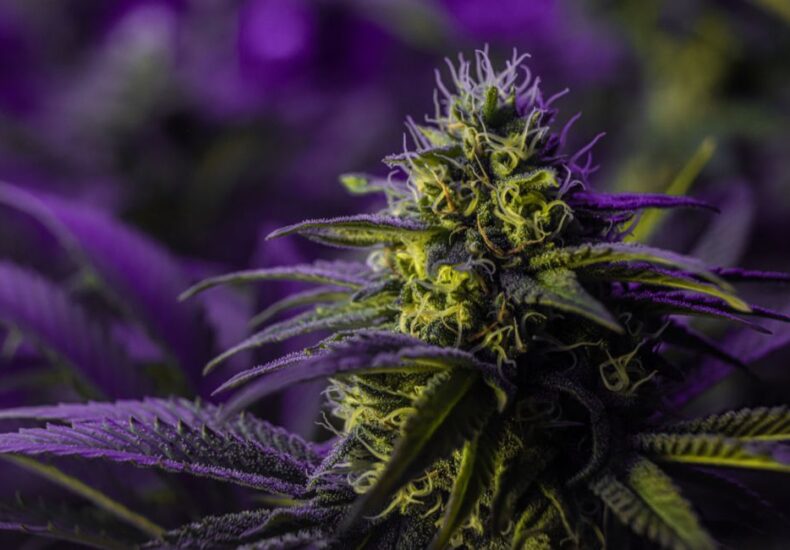
Power of THCa Strains for Natural Wellness
Power of THCa Strains for Natural Wellness
In recent years, the exploration of cannabis for health benefits has gained significant momentum. Among the various compounds found in cannabis, THCa (tetrahydrocannabinolic acid) has emerged as a promising candidate for natural wellness. Unlike its more famous counterpart THC, THCa is non-psychoactive, making it an attractive option for those seeking therapeutic benefits without the high. This article delves into the potential of THCa strains in promoting natural wellness, supported by research, examples, and case studies.
Understanding THCa: The Basics
THCa is a cannabinoid found in raw and live cannabis plants. It is the precursor to THC, the compound responsible for the psychoactive effects of cannabis. When cannabis is heated through smoking, vaping, or cooking, THCa undergoes decarboxylation, converting into THC. In its raw form, THCa does not produce a high, which opens up a range of possibilities for its use in wellness applications.
Health Benefits of THCa
Research into THCa is still in its early stages, but preliminary findings suggest a variety of potential health benefits:
- Anti-inflammatory Properties: THCa has shown promise in reducing inflammation, which can be beneficial for conditions such as arthritis and other inflammatory diseases.
- Neuroprotective Effects: Studies indicate that THCa may help protect brain cells, offering potential benefits for neurodegenerative diseases like Alzheimer’s and Parkinson’s.
- Anti-emetic Properties: THCa may help reduce nausea and vomiting, making it a potential option for patients undergoing chemotherapy.
- Appetite Stimulation: Similar to THC, THCa may help stimulate appetite, which can be beneficial for individuals with eating disorders or those undergoing treatments that suppress appetite.
Case Studies and Research
Several case studies and research projects have highlighted the potential of THCa in natural wellness:
A study published in the British Journal of Pharmacology explored the anti-inflammatory effects of THCa. The researchers found that THCa significantly reduced inflammation in animal models, suggesting its potential as a treatment for inflammatory conditions.
Another study conducted by the University of Guelph examined the neuroprotective properties of THCa. The findings indicated that THCa could protect neurons from oxidative stress, a key factor in neurodegenerative diseases.
In a case study involving a patient with severe nausea due to chemotherapy, THCa was administered in its raw form. The patient reported a significant reduction in nausea and an improved quality of life, highlighting the compound’s potential as an anti-emetic agent.
THCa Strains: A Closer Look
Several cannabis strains are known for their high THCa content. These strains are often used in their raw form to harness the benefits of THCa without the psychoactive effects of THC. Some popular THCa-rich strains include:
- ACDC: Known for its high CBD and THCa content, ACDC is often used for its anti-inflammatory and pain-relieving properties.
- Harlequin: This strain is popular for its balanced ratio of CBD to THCa, making it a favorite among those seeking relief from anxiety and pain.
- Charlotte’s Web: Originally developed for its high CBD content, Charlotte’s Web also contains significant levels of THCa, offering potential benefits for epilepsy and other neurological conditions.
Incorporating THCa into Wellness Routines
For those interested in exploring THCa for wellness, there are several ways to incorporate it into daily routines:
- Raw Juicing: Juicing raw cannabis leaves and flowers is a popular method to consume THCa. This method preserves the compound in its natural form, allowing users to benefit from its therapeutic properties without psychoactive effects.
- Tinctures and Oils: THCa tinctures and oils are available for those who prefer a more convenient method of consumption. These products can be added to food or beverages or taken sublingually for quick absorption.
- Topicals: THCa-infused creams and balms can be applied directly to the skin, offering localized relief for pain and inflammation.
Challenges and Considerations
While the potential benefits of THCa are promising, there are challenges and considerations to keep in mind:
- Research Limitations: The research on THCa is still in its infancy, and more studies are needed to fully understand its effects and potential applications.
- Legal Status: The legal status of THCa varies by region, and it is important to be aware of local laws and regulations regarding its use.
- Quality and Purity: As with any cannabis product, the quality and purity of THCa products can vary. It is important to source products from reputable suppliers to ensure safety and efficacy.
Conclusion
The exploration of THCa strains for natural wellness presents an exciting frontier in the world of cannabis research. With its non-psychoactive nature and potential therapeutic benefits, THCa offers a promising alternative for those seeking natural remedies for a variety of health conditions. While research is still ongoing, the preliminary findings and anecdotal evidence suggest that THCa could play a significant role in the future of natural wellness. As interest in cannabis-based therapies continues to grow, THCa stands out as a compound worth watching.
- The Good, the Bad, and the Ugly: Lear Capital Customer Insights
- .” What’s Developing? The Latest Trends in Useful Beverage Innovations.”
- “A Beginner’s Guide To Understanding Medicinal Qualities & Uses.
- An All-natural Service: Just How CBD Oil Can Aid Relieve Arthritis in Dogs
- Calm Dogs: The Power of CBD for Canines with Anxiety